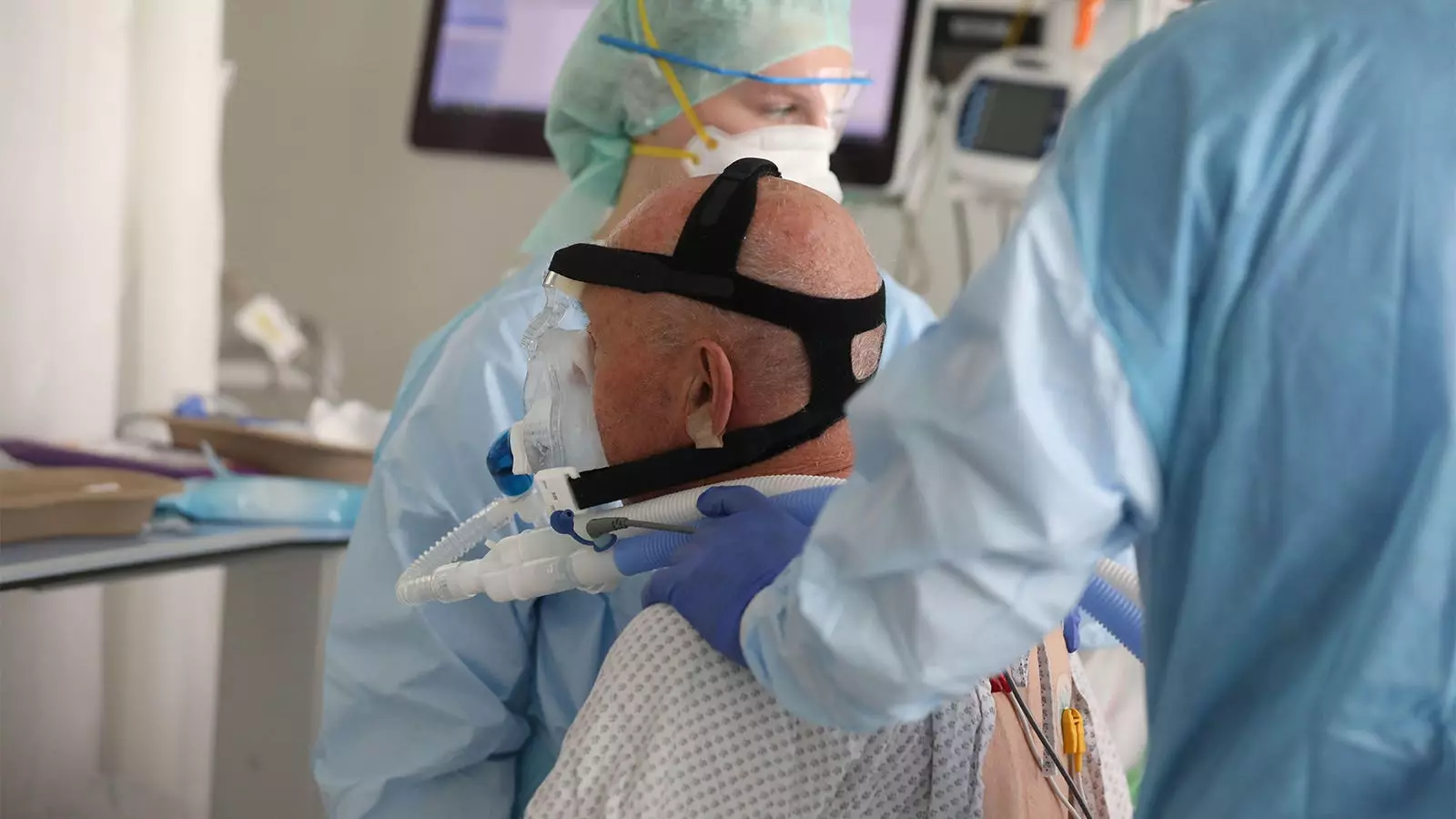In a recent retrospective study conducted at the University of Illinois at Chicago, researchers found a significant association between obstructive sleep apnea (OSA) and the use of non-invasive ventilation (NIV) in hospitalized veterans with COVID-19. The study also revealed that booster vaccination played a crucial role in reducing the risk of NIV use in these patients. These findings shed light on the complex interplay between OSA, COVID-19 outcomes, and vaccination status among older individuals with comorbidities.
The study conducted by Dr. Bharati Prasad and colleagues analyzed data from the Jesse Brown Veteran Affairs Medical Center COVID-19 registry in Chicago, focusing on 1,232 hospitalized individuals with COVID-19, of whom 452 had a diagnosis of OSA. The results showed that patients with OSA had higher odds of requiring NIV compared to those without OSA, even after adjusting for various confounding factors. It was also observed that patients with OSA were more likely to receive pharmacological treatment for COVID-19, which was associated with increased use of oxygen therapy and NIV.
One of the key findings of the study was the protective effect of booster vaccination against the progression of acute respiratory failure in hospitalized veterans with COVID-19. The researchers noted a decrease in the likelihood of NIV and mechanical ventilation among patients who received a booster dose of the COVID vaccine. This effect was consistent across all patients, regardless of their OSA status, highlighting the importance of vaccination in mitigating the severity of COVID-19 outcomes.
The study by Prasad et al. adds to the existing evidence on the relationship between OSA, COVID-19 outcomes, and vaccination. The findings suggest that the presence of OSA may predispose individuals to a higher risk of respiratory failure during COVID-19 infection, emphasizing the need for targeted interventions in this population. Healthcare providers should be aware of the potential impact of OSA on oxygen therapy requirements and hospital readmission rates in COVID-19 patients, especially in the context of vaccination status and pharmacological treatment.
Despite the valuable insights provided by this study, several limitations should be considered. The lack of quantitative data on the severity of OSA and adherence to positive airway pressure (PAP) therapy restricted the researchers’ ability to fully assess the impact of these factors on COVID-19 outcomes. Additionally, the unavailability of vaccination records after a third dose limited the analysis of the long-term effects of booster vaccination on respiratory outcomes in this population. Future research should focus on addressing these limitations and exploring novel strategies to improve the care of COVID-19 patients with OSA.
The study by Prasad and colleagues underscores the importance of considering OSA status, vaccination status, and pharmacological treatment in the management of COVID-19 outcomes in hospitalized veterans. By identifying the association between OSA and increased use of NIV, the researchers have highlighted the need for personalized approaches to care for individuals with comorbidities. These findings contribute to the growing body of evidence on the intersection of sleep disorders, respiratory health, and infectious diseases, paving the way for future research and clinical interventions in this area.

Leave a Reply